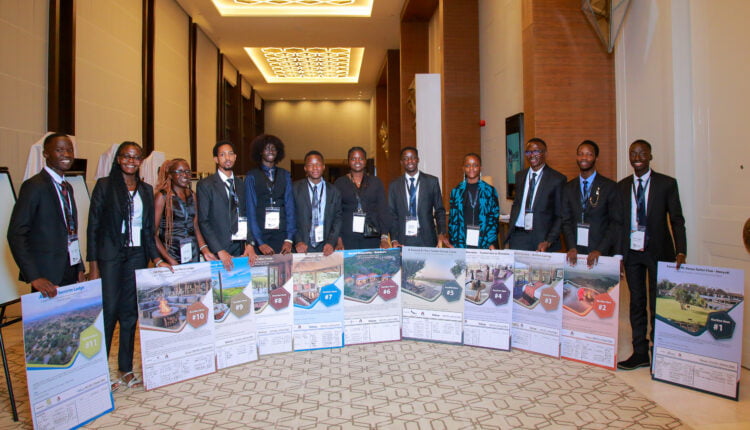KenSAP Kenyan students offered 980M Scholarship fund to American University
By Antynet Ford
22 students of the Kenya Scholar Access Program (KenSAP) have been offered American university scholarships worth USD 7.5 Million (KES 980 Million) for 2024 entrance to top Ivy League universities and colleges.
The 22 scholars present at the 5th KenSAP Annual Charity Dinner Gala held in Nairobi have been admitted to prestigious global universities and colleges, including Harvard, Princeton, Yale, Amherst, Brown, Claremont McKenna, Colgate, Dartmouth, Davidson, Hamilton, Middlebury, Northwestern, Smith, Tufts, University of Pennsylvania, University of Toronto, Wellesley, and Williams.
The scholars comprise the top performers from the Kenya Certificate of Secondary Education (KCSE) Class of 2023, selected from all 47 counties in Kenya, and come from underprivileged backgrounds.
KenSAP pays for students to participate in its free residential university access program for nearly six months, guiding them through the American university application process and teaching them the skills they will need to excel in American universities.
The universities provide scholarship packages that cover a comprehensive range of expenses, including tuition fees, accommodations, meals, travel costs, and other costs of attendance.
KenSAP continues to provide students with guidance, mentorship, and support while they are studying at university.
This financial assistance ensures that the scholars can focus on their academic pursuits without the burden of financial constraints, allowing them to fully immerse themselves in their new educational environments.
Speaking during the dinner gala to celebrate the scholars, the Principal Benefactor and Chairman of KenSAP’s Board of Directors, Charles Field-Marsham said “KenSAP is a testament to our commitment to nurture the brightest minds in Kenya from disadvantaged backgrounds.
By providing these exceptional students with the resources they need, we are not only investing in their futures but also in the future of the country and bringing bright Kenyan minds to places all across the world.
“To the scholars, Congratulations! Your hard work has paid off – you have secured your spot at a top university, standing out from the hundreds of thousands of international applicants applying to the same schools from around the world. This achievement shows the potential of a true global citizen within you but there is still much hard work ahead of you to achieve your potential. Always remember that your success carries the hopes of your families, communities, and Kenya as a whole,” added Mr. Alan Davidson
KenSAP provides access to world-class higher education for high-achieving Kenyan high school graduates from disadvantaged backgrounds who would otherwise have no chance to pursue such opportunities in global institutions across the world.
Each year, KenSAP selects 20 students from more than 1,000 highly qualified applicants. Just to apply, candidates must rank among the top 1⁄10 of 1% of all test takers on the KCSE.
But KenSAP’s selection process, like that of the universities to which its students apply, is holistic, taking into consideration a range of criteria beyond the purely academic, such as family background, extracurricular accomplishments, commitment to community development, and leadership potential.
The selected students spend 20 weeks in residential training free of charge, with KenSAP covering all of their costs of attendance. In this training program, they prepare for university entrance exams, attend American-style seminar courses, learn about America and its universities, and are guided through the complex university application process.
Since 2006, every student taken into the program has earned admission, with full financial aid, to a distinguished American college or university.
Once KenSAP students are admitted to university, KenSAP continues to support them. KenSAP places students into pre-university internships in Kenya and conducts an extensive college readiness and college orientation program for its students. Once the students are in the United States, the program conducts an orientation for new arrivals, organizes reunions that combine career-oriented seminars with social networking and offers academic counseling and alumni mentorship programs.
With long-term impact in mind, KenSAP has become very active in career development and has helped place dozens of alumni in rewarding jobs and internships in Kenya. Since its inception in 2004, more than 80 KenSAP beneficiary students have returned to Kenya to work at leading companies and institutions. Because of the support the program gives its students, and because of its remarkable college admissions track record, KenSAP has long been the first option for talented Kenyan students hoping to pursue higher education in the US.
The program was launched when Kenyatta University Professor Mike Boit and American journalist friend John Manners (Founding Executive Director) initiated a successful pilot scheme with a group of five students which was a year later scaled to 12-15 students after the founding sponsor Charles Field-Marsham stepped in to ensure management stability and financial sustainability for the program, providing 95% of its funding until 2017, when he and Alan Davidson, KenSAP’s current Executive Director, led the program to a more sustainable fundraising approach.
Nowadays, the program relies on alumni to fundraise almost 20% of the annual budget, and in the past few years, they have given more than $350,000 of their own money back to KenSAP.
The team has also been finding other sources of sustainable financial support through Kenyan corporates such as those in attendance at the Annual Charity Dinner Gala.
Leveraging an average annual budget of USD 300,000 (KES 39.3m), KenSAP has unlocked more than USD$87 million (KES 11.4 billion) in financial aid, enabling 295 brilliant Kenyan students to date to study in universities across North America.
KenSAP’s 20th year aligns with a time when private and public stakeholders are being called upon to embrace sustainable practices by adopting the UN Sustainable Development Goals (SDGs) as a guide to assist in the attainment of inclusive and equitable quality education and promote lifelong learning opportunities for all.



